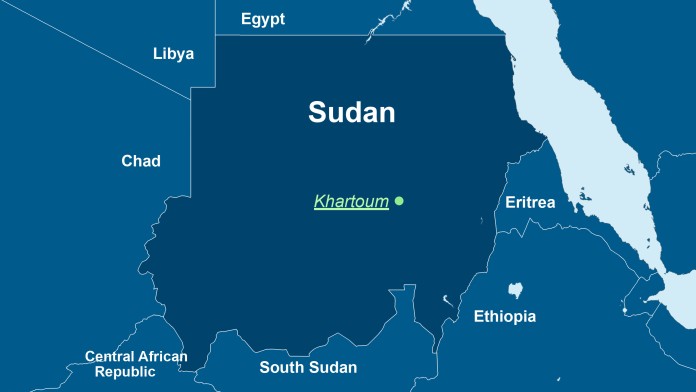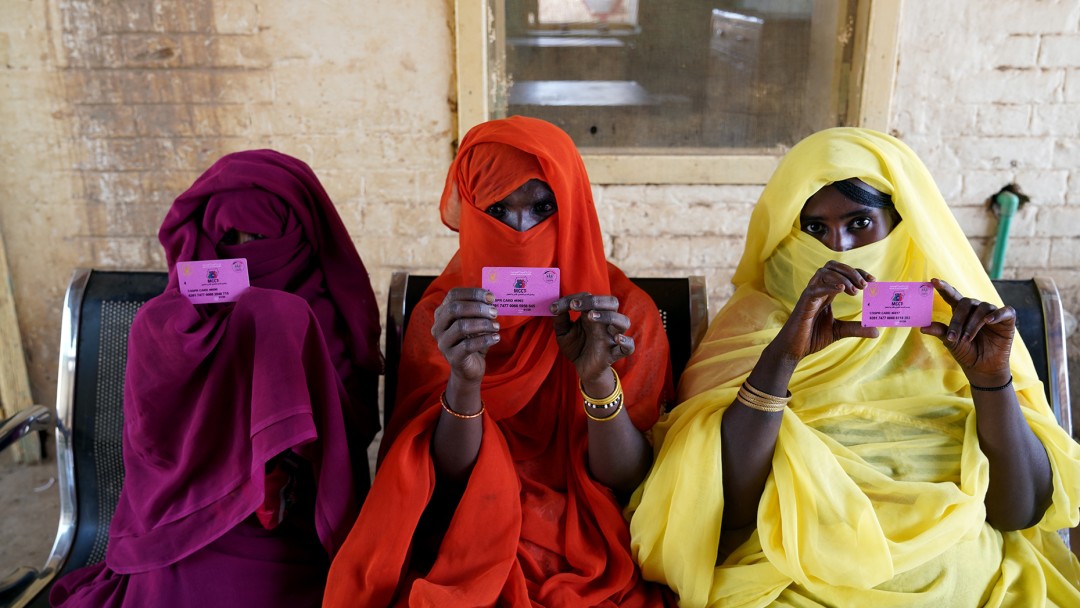
As of: 03/2024
A successful pregnancy and first few days of a baby’s life are crucial for the long-term health, well-being and further development of both mother and child. This is where a project in Sudan comes in: it has been financed by KfW, commissioned by the German Federal Government in five phases so far. Pregnant and breastfeeding women in Sudan receive cash payments in healthcare facilities near their home villages. This allows them to meet midwives and social workers early in their pregnancy. The project contributes to ensuring that women in Sudan have their own funds and access to health services, and are also able to provide better nourishment for their children.
Sudan is one of the poorest countries in the world. It is dominated by high political fragility and is affected by several crises at the same time, including military disputes, the effects of climate change and economic crises. After the fall of Umar al-Bashir in 2019, the country experienced an upturn, but the reform-oriented successor government was forced out of office by the military at the end of 2021. The reforms that had been begun were stopped again. Since the outbreak of war in April 2023, a power struggle between the military and the paramilitary Rapid Support Forces (RSF) has been raging. Since then, individual regions have been completely cut off from government services and large parts of the country have been taken over by fighting. This means that basic services such as education and health are lacking. Women and children are among the groups most affected by poverty and suffering. The mortality rate is very high, with many women and children suffering from malnutrition or undernutrition. Pregnancy and childbirth are very risky for many women in these circumstances. A total of 90% of children are not getting enough food, which has dramatic consequences for their physical and mental development. After all, the first 1,000 days lay important groundwork for later life.

Commissioned by the Federal Ministry for Economic Cooperation and Development (BMZ) and together with UNICEF, KfW has been supporting the development of a social security network for mothers and children since the beginning of 2021. The project started in Red Sea and Kassala, the two states with the highest mortality and malnutrition rates in east Sudan, and was expanded in the fourth phase to the River Nile, to where many internal refugees have fled. The locations for the fifth phase are currently being determined.
KfW is financing small, regular payments to pregnant and breastfeeding women that are sufficient to buy food for one person for about 20 days. The aid is disbursed in the local health centres. As a result, the women visit these facilities. This allows them to come into contact with midwives and social workers at an early stage. They also take part in training on mother-child health as well as learn about the right nutrition for children, family planning and gender roles in the family. The payments allow many women to manage their own funds and decide how to use them for the first time. They often use them to buy food, toiletries or other daily essentials for themselves and their children during and after pregnancy, while some women buy goats. In a very conservative and traditional environment, women are gaining more freedom. Now that many more women are coming to health centres, the centres need better equipment. As part of the project, they therefore receive additional medicines, food supplements and equipment for midwives, as well as improved sanitary and hygiene equipment.
The project has already positively changed women’s behaviour: many women are coming for the first time, or they come earlier and more frequently for pre- and follow-up examinations. This is reducing complications during pregnancy, or even preventing them altogether. The mortality rate of mothers and children in the programme region is decreasing. A total of 105,000 women and their children have been reached across all project phases. The need is huge: a total of around 630,000 people are directly or indirectly benefitting from the project.
It is helping to improve women’s opportunities. When women have access to their own finances, they gain more freedom and are better able to make their own decisions in a country that is very traditional. As a result of the project, husbands are more likely to agree to their wives visiting health centres because they receive payments there. The women engage with other mothers and learn to question harmful traditional myths about pregnancy and nutrition. Their diet and that of the children has improved.
The project contributes to the achievement of these following United Nations Sustainable Development Goals:
KfW Group
KfW Development Bank
Governance, Stabilisation and Water Eastern Africa and African Union
Share page
To share the content of this page with your network, click on one of the icons below.
Note on data protection: When you share content, your personal data is transferred to the selected network.
Data protection
Alternatively, you can also copy the short link: https://www.kfw-entwicklungsbank.de/s/enzByy_g
Copy link Link copied